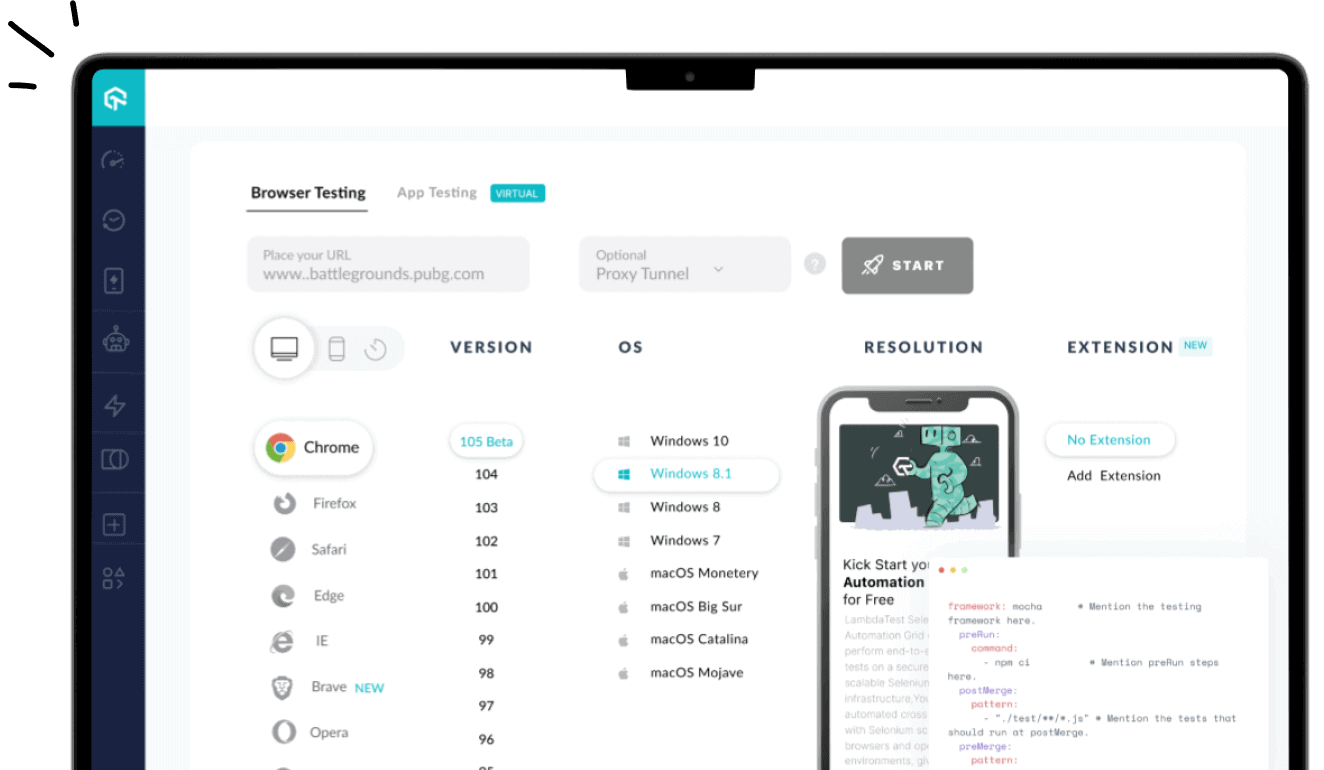Power Your Software Testing with AI and Cloud
Supercharge QA with AI for Faster & Smarter Software Testing

:placeholder-shown CSS pseudo-class Browser Compatibility On Opera
Form elements sometimes provides a hint to the user on type of input they should give. Example, the HTML5 placeholder attribute. :input:placeholder-shown matches an element that is showing such placeholder text.
Last updated on : 2025-11-11
Support for :placeholder-shown CSS pseudo-class on all Opera versions
Here’s the support for :placeholder-shown CSS pseudo-class across all versions of Opera:
Why Test on Opera?
To make a right testing strategy it's important to understand how many users are actually using the Opera browser
To help you build the right browser testing matrix, here's the overall marketshare of both Opera browser the various versions.
TOP Opera BROWSERS
Browser Version
% Share
Release Date
Opera 123
0.43
2024-03-27
Opera 92
0.39
2021-08-03
Opera 122
0.3
2024-03-05
Opera 96.1
0.15
2025-12-09
Opera 124
0.14
2024-05-14
Opera 96
0.12
2021-12-02
Other
1.37
-
Data Source: Statcounter.com
ALL DESKTOP BROWSERS
Browsers
% Share
Chrome
75.23
Edge
9.95
Safari
5.25
Firefox
4.25
Opera
2.2
Brave
1.19
Other
1.94
Data Source: Statcounter.com
Browser Versions
IE
Edge
Firefox
Chrome
Safari
Opera
Fully Supported
Partially
No Support
About Opera
The Opera browser was originally released in 1996 by the Opera Software company. It has remained a popular web browser for many years and is still actively developed today. In 2013, it announced that it would switch from its proprietary Presto engine to the open-source Chromium project.
Opera features a built-in screenshot tool; this is just one of the many features Opera has adopted from other web browsers, including Speed Dial, pop-up blocking, re-opening recently closed pages, private browsing, and tabbed browsing. Opera is a Web browser that is smaller in size, faster and more stable than Mozilla or Microsoft browsers.
Opera has released a new cryptocurrency wallet for Android phones. The app, available on the beta and developer versions of Opera for Android, supports Web 3, which is specifically for mobile payments and cryptocurrency payments. The wallet is highly secure, and funds are stored with full control from the user. There is no need to enter a PIN code or password, as the user's smartphone will act as their way to unlock the wallet.
Opera lets you easily chat through Facebook Messenger, VKontakte and WhatsApp from your PC, including muting your notifications and tracking them on your phone.
Download Opera
To Download Opera browser’s latest version, visit the official Opera website.
Resources:
Latest Opera version: 122
:placeholder-shown CSS pseudo-class is Fully Supported in Opera. To ensure it works seamlessly on your website or web app, test your site’s URL on Opera using LambdaTest.
Test on 3000+ browsers for :placeholder-shown CSS pseudo-class & more
Test your website on Opera and other browsers for :placeholder-shown CSS pseudo-class and more. Get 100 FREE automation test minutes!
Test Now

Start your journey with LambdaTest
Get 100 minutes of automation test minutes FREE!!
Did you find this page helpful?
